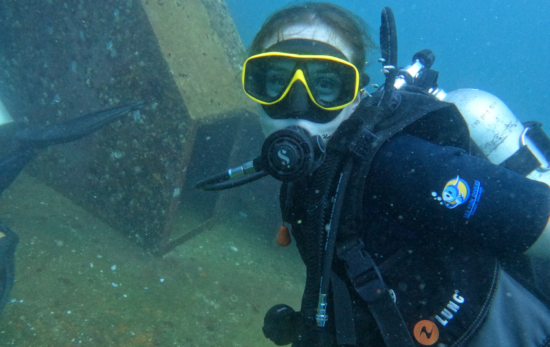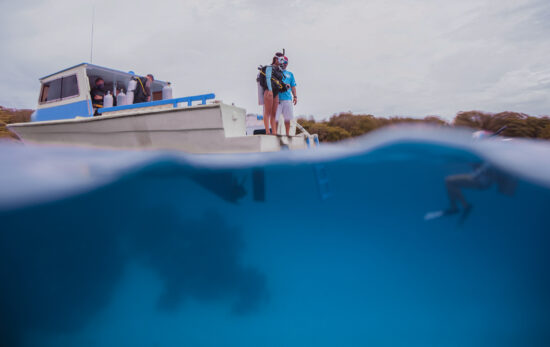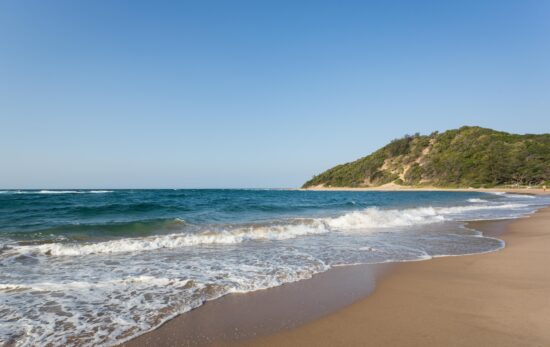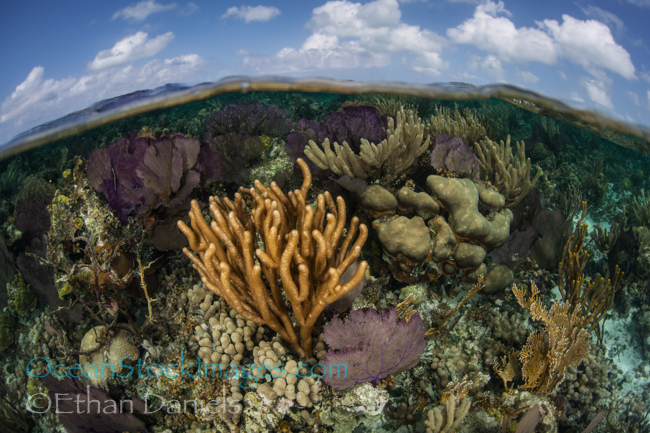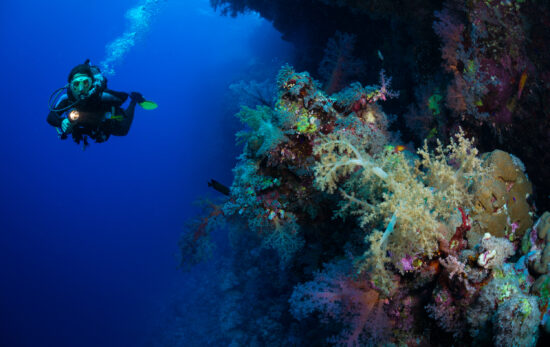At 11,390 square miles (30,000 square kilometers), Lake Malawi in Africa is one of the largest and deepest lakes on the planet, but that’s not the superlative I want to focus on below. What intrigued me most: Lake Malawi is among the world’s most biodiverse freshwater bodies, and night diving is the best time to see the action. After dark, divers watch as dolphin fish dart between car-sized boulders to hunt the East African lake’s famous and evolutionarily marvelous cichlids. The tiny fish, which have been compared to Darwin’s finches, evolved from one to at least 800 species in the last 750,000 years. To see them, and their periwinkle dolphin-fish predators, dive into Lake Malawi, one of the world’s most biodiverse lakes, at night.
(Ready to dive in? Learn more about obtaining your PADI Night Diver Specialty course here!)
Lake Malawi: A Biodiversity Hotspot
Lake Malawi is celebrated as one of the world’s most biodiverse freshwater lakes, home to thousands of species of fish. Its fame largely rests on its population of cichlids, small colorful fish that have evolved in isolation over hundreds of thousands of years. Often studied due to their rapid evolution and diversification, cichlids in Lake Malawi have adapted to a variety of ecological niches within the lake. Scientists estimate there are at least 800 distinct cichlid species here, all evolved from a common ancestor within a remarkably short evolutionary timeframe of around 750,000 years.
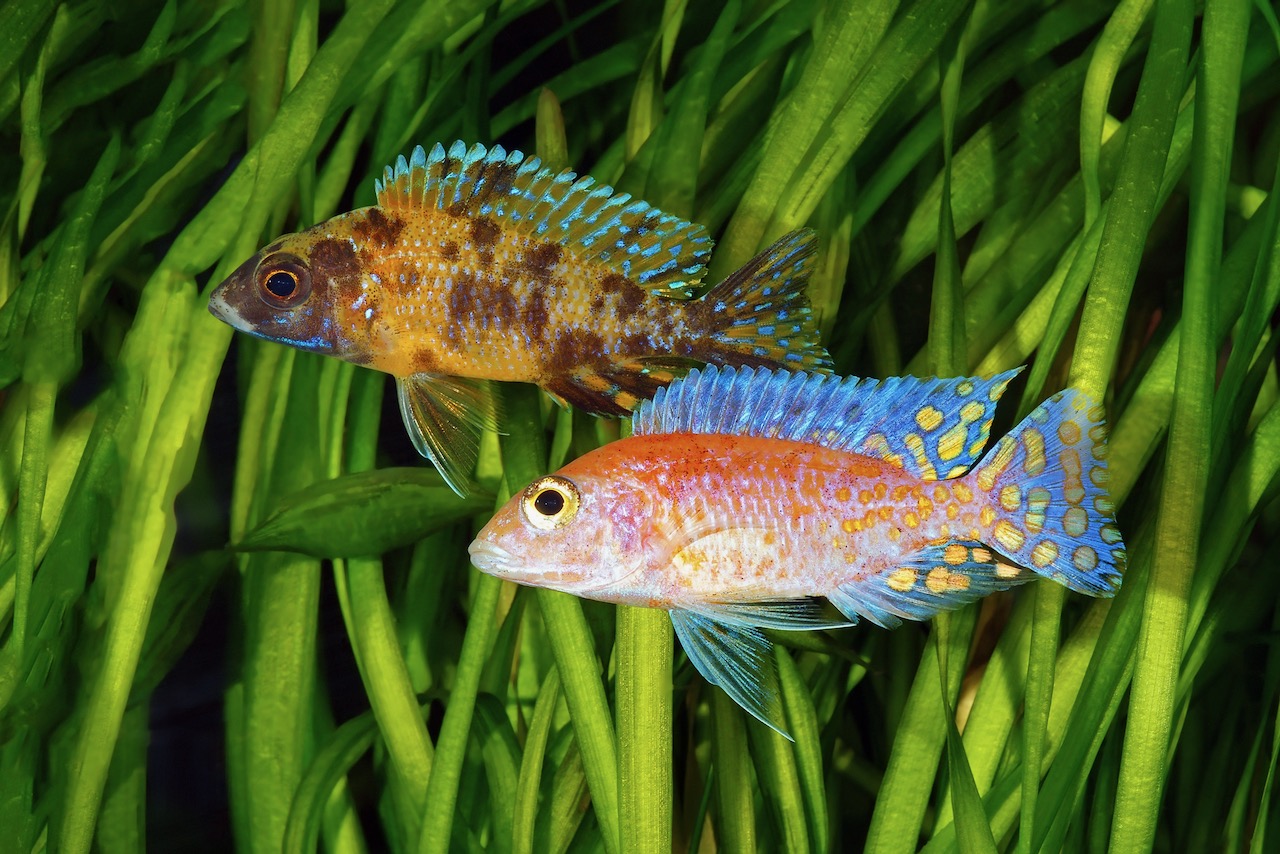
Why Night Diving in Lake Malawi is a Must-Do
While diving Lake Malawi is spectacular at any time of day, night diving takes the experience to another level. As the sun sets, the lake’s giant boulders and rocky crevices become prime hiding spots and hunting grounds, and the lake’s underwater residents come alive in new ways. Cichlids, often colorful and active, dart around the rocky terrain, while their natural predators, including the agile dolphin fish, emerge to hunt. It’s an exhilarating opportunity to observe predator-prey interactions and witness the lake’s ecosystem in action. For divers passionate about marine biology, observing these unique species and their interactions in their natural habitat is an unforgettable experience.
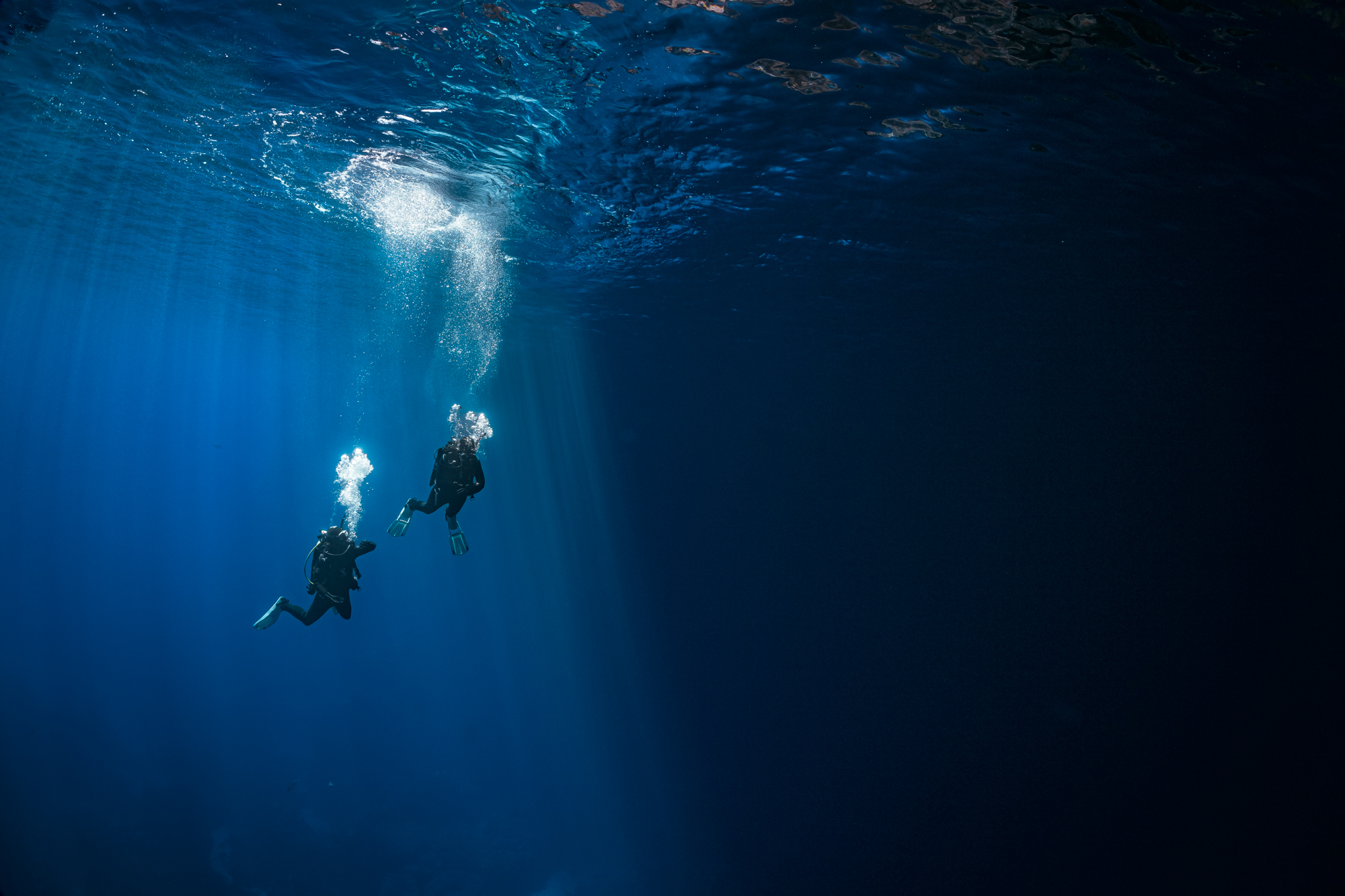
Plan Your Dive With a PADI Dive Shop
If you’re intrigued by Lake Malawi’s night diving and eager to experience it for yourself, a great starting point is by booking a dive with a PADI Dive Shop. These dive shops offers guided night dives that allow you to explore the lake safely and gain insights into the unique ecosystem. With experienced guides familiar with Lake Malawi’s diverse marine life, they provide an unforgettable experience, giving you a front-row seat to the lake’s dynamic underwater world.
Whether you’re an advanced diver looking to tick off a unique night dive or a beginner curious about Lake Malawi’s biodiversity, PADI dive shops can help make your diving dreams a reality.
Mysteries abound in the Earth’s great bodies of water, and few adventures showcase this like a night dive in Lake Malawi. These moonlit outings spotlight a side of Lake Malawi few get to see.
Ready to dive into the world after dark? Sign up for PADI’s Night Diver Specialty course, a roughly two-day course that teaches you how to safely admire the ocean on twilight excursions.


This blog post was written by Stephanie Vermillion, author of the new National Geographic book, 100 Nights of a Lifetime: The World’s Ultimate Adventures After Dark, which highlights the best of the ocean’s after-hours wonders. The dives included in the book feel less like a dip in the sea, and more like a leap into outer space—as do many of the book’s land-based outings, such as hiking beside glowing mushrooms in Australia or stargazing in the same rugged place NASA readies for its Mars missions: Chile’s Atacama Desert.
